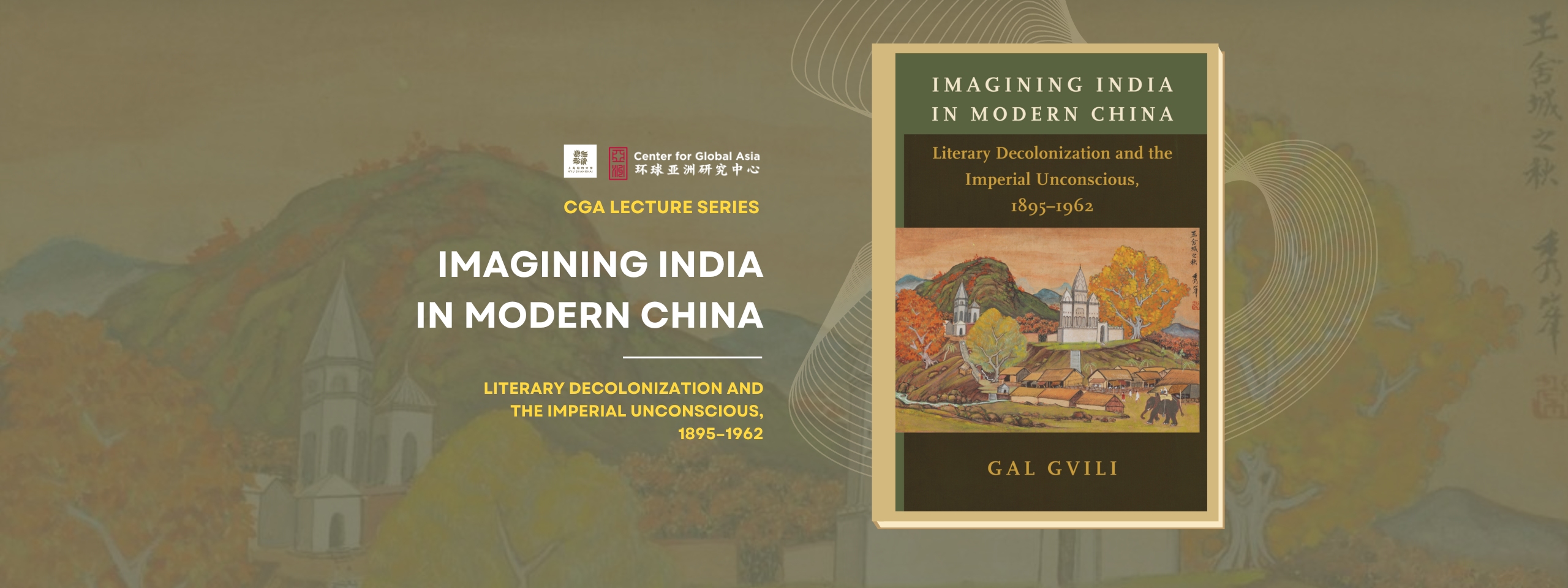CONTACT US
Email: shanghai.cga@nyu.edu
Phone Number: +86 (21) 20595043
WeChat: NYUShanghaiCGA
Address:
Room W822, 567 West Yangsi Road,
Pudong New Area, Shanghai, China

© 2024 All Rights Reserved

Speaker: Gal Gvili
Venue: Hosted via Zoom
Date & Time:
2022-11-18 | 21:00-22:30 (Shanghai)
2022-11-18 | 8:00-9:30 (New York)
2022-11-18 | 17:00-18:30 (Abu Dhabi)
2022-11-18 | 13:00-14:30 (London)
Beginning in the late Qing era, Chinese writers and intellectuals looked to India in search of new literary possibilities and anticolonial solidarity. In their view, India and China shared both an illustrious past of cultural and religious exchange and a present experience of colonial aggression. These writers imagined India as an alternative to Western imperialism—a Pan-Asian ideal that could help chart an escape route from colonialism and its brutal grasp on body and mind by ushering in a new kind of modernity in Asian terms.
Gal Gvili examines how Chinese writers’ image of India shaped the making of a new literature and spurred efforts to achieve literary decolonization. She argues that multifaceted visions of Sino-Indian connections empowered Chinese literary figures to resist Western imperialism and its legacies through novel forms and genres. However, Gvili demonstrates, the Global North and its authority mediated Chinese visions of Sino-Indian pasts and futures. Often reading Indian literature and thought through English translations, Chinese writers struggled to break free from deeply ingrained imperialist knowledge structures.
Imagining India in Modern China traces one of the earliest South-South literary imaginaries: the hopes it inspired, the literary rejuvenation it launched, and the shadow of the North that inescapably haunted it. By unearthing Chinese writers’ endeavors to decolonize literature and thought as well as the indelible marks that imperialism left on their minds, it offers new perspective on the possibilities and limitations of anticolonial movements and South-South solidarity.
Gal Gvili studies and teaches modern and contemporary Chinese literature. Her articles have appeared or are forthcoming in The Journal of Asian Studies, Religions, Comparative Literature Studies, China and Asia: A Journal in Historical Studies and the edited volume Beyond Pan-Asianism: Connecting China and India 1840s-1860s. Her book Imagining India in Modern China: Literary Decolonization and the Imperial Unconscious, 1895-1962 (Columbia University Press, 2022) examines how the image of India, in particular, Chinese writers’ multifaceted visions of Sino-Indian connections, shaped the making of a new literature in the twentieth century.
Introduction by Adhira Mangalagiri, Lecturer in Comparative Literature, Queen Mary University of London.
To our visitors:
• RSVP may be required for this event. Please check event details
• Visitors will need to present a photo ID at the entrance
• There is no public parking on campus
• Entrance only through the South Lobby (1555 Century Avenue)
• Taxi card
• Metro: Century Avenue Station, Metro Lines 2/4/6/9 Exit 6 in location B
• Bus: Century Avenue at Pudian Road, Bus Lines 169/987
Email: shanghai.cga@nyu.edu
Phone Number: +86 (21) 20595043
WeChat: NYUShanghaiCGA
Address:
Room W822, 567 West Yangsi Road,
Pudong New Area, Shanghai, China

© 2024 All Rights Reserved